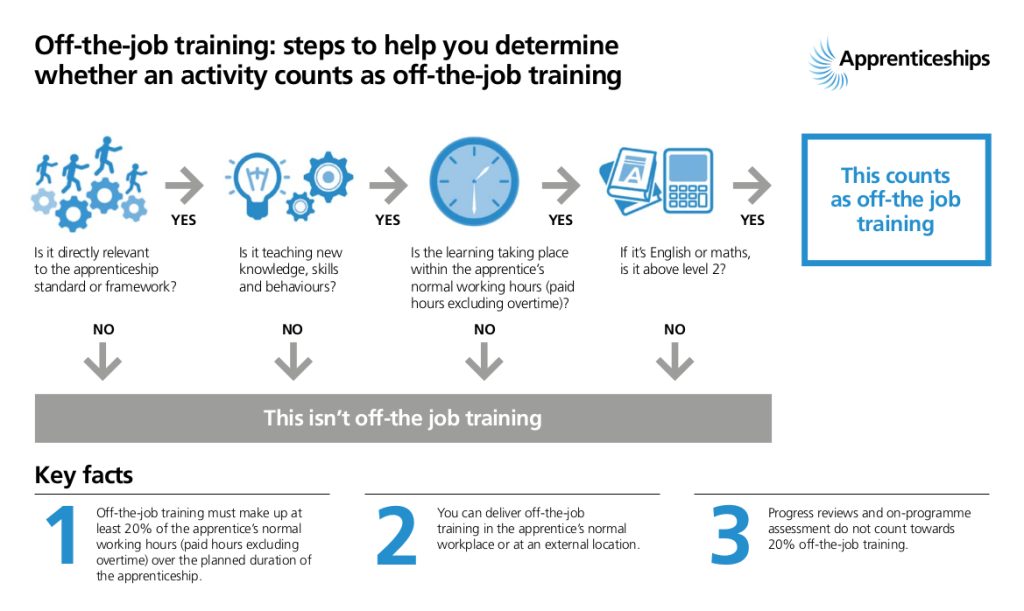Apprenticeship Starter Guide
If you’ve just secured an Apprenticeship, this guide will tell you everything that an Apprenticeship entails with a detailed explanation for each step.
1. Enrolment Process
The first step is the Discovery Meeting, which is all about ensuring the Apprenticeship qualification is the right fit for you. They’ll ask about why you’re interested in the Apprenticeships, what previous qualifications you have & how these relate or crossover with the Apprenticeship. This is important as the training providers need to ensure you are not doing learning things you already know or in general doing an Apprenticeship that is not well suited.
Next they will test your skills & build an understanding of your prior learning & experience in an Initial Assessment. It’s important to do this as they must ensure the work you are given includes learning aspects that are essential to the field or doesn’t include things you have already studied during education. This usually involves your English & Maths & will be primarily done online independently.
They will also ensure they have all of the relevant information about the apprentice beforehand e.g. qualifications, name, date of birth etc. It is important to make sure you have access all of your key information before this stage like your national insurance number & any certificates from previous courses.
The Apprenticeship Agreement is then done which is an agreement between the apprentice, employer & training provider. It is essentially a contract to ensure each party is committed to finishing the full apprenticeship & doing the duties they are giving. Agreements vary between roles but will usually involve start & end dates, what will happen if the apprenticeship ends for whatever reason & signatures from all parties.
2. Apprenticeship Journey
Off-the-Job Training will be a key part of your apprenticeship journey. This is essentially any relevant activity that happens outside of your regular job role. This would be a minimum of 6 hours per week or 20% of the Apprentices total work hours. Off-the-job training must be relevant to the apprenticeships standard & involve the teaching of new skills/knowledge. It can happen in or outside of the normal workplace & doesn’t include progress reviews or on-programme assessments.

During the Apprenticeship you’ll be assigned a tutor to assist with your work who will attend Tutor Sessions with you. They will visit or contact the Apprentice about once every 4 weeks to deliver training & provide the required resources to do work before their next session.
During this journey you will be gradually building your portfolio which is essentially evidence of the work & progress you have made.
3. End Point Assessment
This is the final stage of the Apprenticeship. Think of this like your final year GCSE’s or final project in college in that it tests that you have learnt all the necessary knowledge to pass your Apprenticeship and secure your qualification. This only happens after your progress reviews & once the employer, apprentice & training provider have agreed the sufficient amount of progress has been reached beforehand. The assessment will be different depending on the qualification you are aiming for but all will follow the same structure. The assessment is done by an independent end point assessor.
How 360 Apprenticeships Can Help
You can find out more regarding the apprenticeship scheme on our website. To speak to one of our recruiters directly, you can contact us on: 0161 4644805
Or email us at [email protected].
You can also find us on social media:
Facebook: 360 Apprenticeships
Instagram: @360apprenticeships
LinkedIn: 360-apprenticeships
Twitter: @360Apprentices